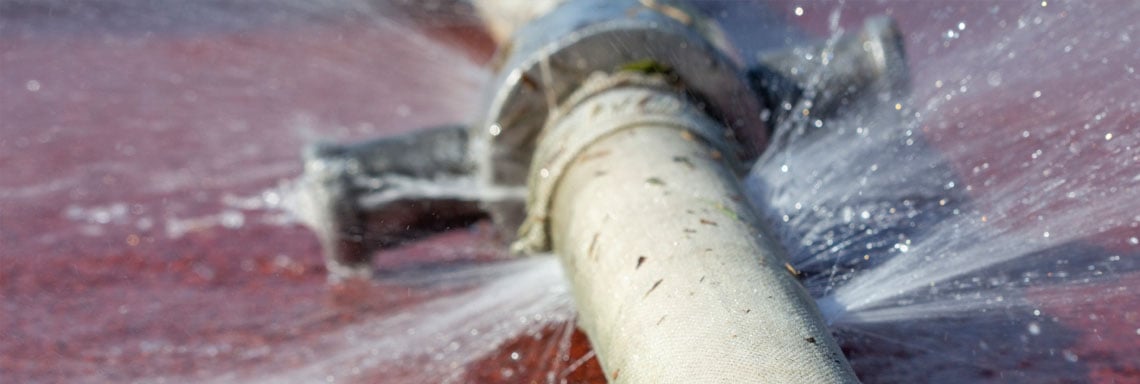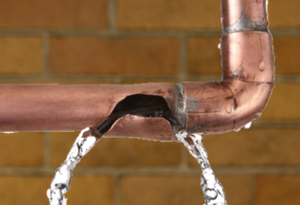What You Should Know About Routine Septic Tank Maintenance
What You Should Know About Routine Septic Tank Maintenance
Blog Article
How do you really feel in relation to Do’s And Don’ts For Homeowners Managing With Water Damage?

What should you do if a water pipe bursts in your residence? The longer you wait, the a lot more serious the damage that can take place to your residential property. For these factors, you need to find out just how to act in the event of a burst water pipeline.
Turn off the Main Waterline Shutoff
Look for the local shut-off shutoff to turn off the water in one certain area just. If you don't understand where the local shut-off valve is, go for the major water line valve and also turn it off. Usually, the primary valve is discovered outside the residence next to the water meter.
Call Water Damages Repair Pros for Help
After closing the water source, call the experts for aid. This situation is not something you can do some do it yourself because the pipes required to be fixed as well as there is a demand to address the various other problems to your residential or commercial property. If you can not cope, seek help from a credible company providing 24/7 emergency solutions. With their specialist aid, you can prevent much bigger water damages consisting of warped baseboards, loosened floor tiles, or harmed structures. Don't take this issue gently and also look for professional assistance for your complete peace of mind and a reputable remedy.
Document the Damage For Insurance
While you're waiting for the pros to arrive, get some documentation of the damage caused by the errant pipe. Take pictures and videos of every little thing. Do close-up shots of the harmed areas as well as belongings. Your documentation will serve as evidence for your homeowner's insurance. Maintaining aggressive with this scenario aids you to sue for protection, which will even more support you and your family members to come back on your feet.
Restore Things That Can Be Saved
Once you're done taking images, take a look at the harmed items and obtain one of the most important ones from the stack. Dry them off in a dry/warm area away from the damaged location as well as try to maintain them as high as you can. Drag as much moisture as you can to the product so it can begin to dry.
Begin the Drying Process
Fortunately, the water from your waterlines is currently clean so you do not have to worry regarding sewer water. The streaming water might have disturbed the dust and also particles in your floorboards and rugs. Blot out as much water as you can from the surface areas with old towels.
Experts are the only individuals qualified to examine correctly as well as deal with the burs pipes as well as succeeding damage. As constantly, pipes don't simply suddenly burst out of heaven. They usually give quiet warnings like bubbling paint, water spots. Unusual noises in the plumbing, caving ceiling, mildewy smell, or peeling wallpaper. Take note of these indications and also do some safety nets so you can nip any kind of issues in the bud.
What should you do if a water pipeline ruptureds in your house? For these reasons, you need to discover exactly how to act in the occasion of a ruptured water pipe. After shutting the water source, call the professionals for assistance. With their professional aid, you can protect against a lot bigger water damages including distorted walls, loosened floor tiles, or damaged structures. Luckily, the water from your waterlines is currently clean so you don't have to stress regarding drain water.
Tips for preventing water damage at your business
Insulate exposed pipes
When temperatures drop during the winter, especially at night, exposed pipes are vulnerable to freezing. Plummeting temperatures or cold drafts can freeze water inside a poorly insulated pipe, creating pressure and ultimately causing the pipe to burst. A broken pipe can lead to costly flooding or even structural damage.
The best way to prevent frozen pipes is to ensure they’re insulated. Most hardware stores carry pipe insulation. The more insulation you use, the better protected your pipes will be.
Keep heat at sufficient levels
To prevent pipes from freezing, you’ll want to keep an eye on your business’s thermostat. Make sure the thermostat is never set lower than 50 degrees – even on weekends or when the building is vacant. Avoid significant changes between nighttime and daytime temperatures, which increases the risk of your pipes freezing. In addition, be sure to regularly replace batteries in thermostats to ensure they’re operating correctly.
Clear your roof
Snow and ice accumulation on your business’s roof can result in weakened roofing materials and create “ice dams,” which prevent melted ice and snow from properly draining. Regularly remove snow and ice from your business’s roof to prevent structural damage. Know your roof’s load-bearing capacity, and periodically check to ensure that snow and ice aren’t accumulating beyond its weight limits.
Seal cracks and gaps
Seal any cracks, holes, or other gaps in your building’s exterior and foundation to ensure that cold air doesn’t penetrate your building and warm air doesn’t escape. Caulk, weather stripping, and other sealants can be used to make your building more energy efficient and reduce the risk of frozen pipes.
Keep track of valuable items
Knowing the value of items in your building will help you replace them in the event they’re damaged by a water-related incident. If there’s a risk of flooding, move valuable items from the floor of your business – as long as you don’t put yourself at risk. If flooding does occur, you’ll need to ensure that the building has been safely evacuated and that all employees and customers are able to get to higher ground as soon as possible.
Protect your business with insurance
It’s important to have adequate insurance in place in the event that you do experience water or freezing damage. When it comes to small business insurance, the details of your coverage matter.
Many commercial property insurance policies will cover the cost of pipe breakage but will exclude damage from flooding, groundwater, and backed-up sewer lines. Your insurer will likely look at the source of the water damage when you make a claim and decide whether you’re covered. You can ask your insurer to add a rider, or an endorsement, to your policy to extend coverage to hazards that are excluded from your policy to ensure your business is protected.
https://www.insureon.com/blog/tips-for-preventing-water-damage-at-your-business

I was shown that article about Quick Tips To Help Deal With Water Damage from a good friend on a different web blog. Sharing is nice. Helping people is fun. Thank-you for your time invested reading it.
Report this page